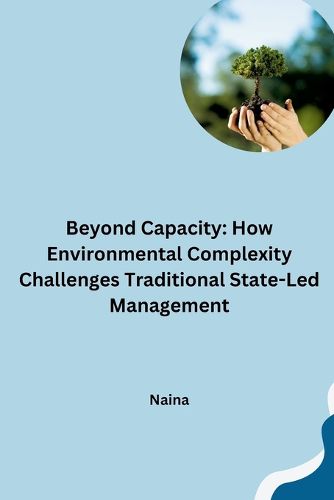Readings Newsletter
Become a Readings Member to make your shopping experience even easier.
Sign in or sign up for free!
You’re not far away from qualifying for FREE standard shipping within Australia
You’ve qualified for FREE standard shipping within Australia
The cart is loading…






For generations, environmental protection relied heavily on government regulations. This top-down approach, however, is struggling to keep pace with the ever-increasing complexity of environmental challenges. The sheer scale and interconnectedness of environmental issues like climate change and biodiversity loss push traditional state-led management to its limits. These challenges often transcend national borders, demanding international cooperation and a broader range of expertise. Furthermore, environmental issues are not isolated problems; they are intricately linked. Addressing air pollution, for instance, might also require changes in land-use practices or energy production. Traditional state-based management often struggles with this interconnectedness, lacking the agility to navigate these complex systems. This is where the limitations of state capacity become evident. Governments may lack the resources or expertise to effectively address all environmental issues. Additionally, bureaucratic processes can be slow and cumbersome, hindering timely action. The need for a new approach is clear. Moving beyond state-led management requires exploring avenues for collaboration. Multi-stakeholder governance, with its focus on partnerships between governments, businesses, NGOs, and communities, offers a promising path forward. By harnessing the collective knowledge and resources of diverse actors, we can develop more effective and sustainable solutions for a healthier planet.
$9.00 standard shipping within Australia
FREE standard shipping within Australia for orders over $100.00
Express & International shipping calculated at checkout
For generations, environmental protection relied heavily on government regulations. This top-down approach, however, is struggling to keep pace with the ever-increasing complexity of environmental challenges. The sheer scale and interconnectedness of environmental issues like climate change and biodiversity loss push traditional state-led management to its limits. These challenges often transcend national borders, demanding international cooperation and a broader range of expertise. Furthermore, environmental issues are not isolated problems; they are intricately linked. Addressing air pollution, for instance, might also require changes in land-use practices or energy production. Traditional state-based management often struggles with this interconnectedness, lacking the agility to navigate these complex systems. This is where the limitations of state capacity become evident. Governments may lack the resources or expertise to effectively address all environmental issues. Additionally, bureaucratic processes can be slow and cumbersome, hindering timely action. The need for a new approach is clear. Moving beyond state-led management requires exploring avenues for collaboration. Multi-stakeholder governance, with its focus on partnerships between governments, businesses, NGOs, and communities, offers a promising path forward. By harnessing the collective knowledge and resources of diverse actors, we can develop more effective and sustainable solutions for a healthier planet.